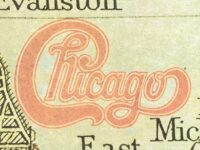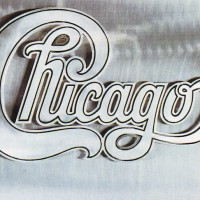Danny Seraphine served as the drummer for Chicago from 1967 to 1990. He may not be one of the more famous drummers in rock ‘n roll history but he is definitely on the list of the most respected skin beaters of the classic rock era.
Twenty years after the band dismissed him amid great acrimony, he and collaborator Adam Mitchell offered Street Player: My Chicago Story, a 281-page autobiography that also doubles as a history of this outstanding rock septet.
As many celebrity memoirs do these days, Seraphine’s book does not start at the beginning. Instead, it opens with a tragedy that had a profound effect on his life and on the lives of all of his bandmates: the unexpected death of guitarist Terry Kath. Kath’s demise is discussed in more detail later in the book but before that sad chapter Seraphine takes you back to his childhood, to his ethnic Italian upbringing in the city his band was named for, and how he became a delinquent. He dropped out of high school and joined a violent street gang which served as a training ground for his probable graduation into the Outfit, the name given to the local chapter of the Mafia.
Instead, Seraphine’s extraordinary talent as a drummer changed his life. He received an offer to play in one of Chicago’s top local rock bands and, while he never completely lost touch with some of his street pals, he did manage to right himself, become a huge success, and avoid a life of crime. From there, he details how he met Kath and woodwind player Walt Parazaider, both of whom helped him form Chicago.
Seraphine explains how close of a bond the members of Chicago formed with each other. They benefited from a brotherhood that most bands could only dream of. For a long, long, time, just like the Three Musketeers, Chicago was “all for one and one for all.” As expected, that bond eventually came unglued — beginning with Peter Cetera’s departure in the mid-1980s. Until then, the band was always highly loyal and supportive of each other.
Seraphine tells us how Chicago moved to Los Angeles to break into the big time and how they met and played with rockers who were already icons: among them were Jimi Hendrix, Janis Joplin, Frank Zappa, and Led Zeppelin’s John Bonham. The drummer talks about sex, drugs, fame, the Hollywood lifestyle, and the business side of the music world. He tells us how he became more and more involved in Chicago’s business matters because the drugs that became a part of their daily lives had far less of a negative impact on him than they did on the rest of the band. Management often came to Seraphine on many important issues because he was the most lucid member.
While Kath had his troubles, trumpeter Lee Loughnane and keyboard player Robert Lamm were eternally strung out on cocaine. Later, trombonist Jim Pankow almost lost his job because of alcoholism. Unfortunately, Seraphine readily acknowledges that his own problems, often created by what he describes as his “Italian temper” and his quasi-leadership of the group, were ingredients that resulted in his devastating dismissal from the band with the unbreakable bond. It took him many years to recover from his loss and he allowed it to almost destroy his life.
The drummer takes us right up to current times by celebrating his return to performing with his new band, California Transit Authority, even while he still wishes for a reconciliation with his old bandmates. It must have given Seraphine a real thrill when Lamm called him after the release of CTA’s debut CD to congratulate him on how well the new group reworked Chicago’s old songs.
[SOMETHING ELSE! INTERVIEW: Danny Seraphine talks about the beginnings of Chicago, and the end, then how he finally emerged with a new band, California Transit Authority.]
The book is not perfect. What’s missing is detailed discussion about Chicago’s music and how it was written, recorded, and produced. The narrative often feels like Seraphine was sitting around a campfire telling stories while someone turned on a tape recorder to capture his thoughts. The book also lacks proper editing. Frequently, entire words are missing from sentences, causing you to read them again to make sure you understand their meaning.
Unlike Keith Richards’ recent memoirs, a book that appeals to a lot more people, you won’t be interested in Street Player unless you are a Chicago devotee. But, if you are, the book is a must read, even with its flaws.
- How Billy Joel’s ‘Turn the Lights Back On’ Recalls Past Glories - March 22, 2024
- ‘George Harrison: The Reluctant Beatle’ by Philip Norman (2023): Books - January 10, 2024
- Yes, ‘Now and Then’ Is an Actual Beatles Song - November 6, 2023




